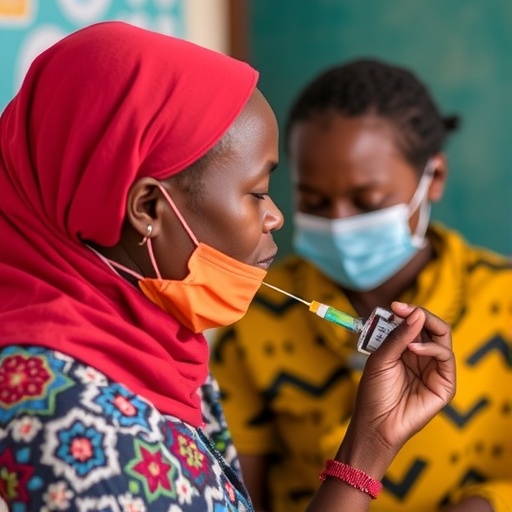In recent years, vaccine hesitancy has emerged as a significant public health challenge, particularly in affluent nations where vaccine access is rarely a limiting factor. Despite the widespread availability of immunizations, a growing subset of the population actively chooses to delay or refuse vaccinations, jeopardizing herd immunity and the collective safeguards against preventable diseases. This paradox of vaccine hesitancy amid resource-rich contexts compels a deeper examination of the underlying cognitive, social, and systemic mechanisms that perpetuate skepticism toward immunization efforts.
Vaccine hesitancy encompasses a complex spectrum of attitudes ranging from uncertainty and delay to outright refusal. Unlike in low- and middle-income countries where logistical deficits such as vaccine shortages and healthcare infrastructure gaps predominate, in high-income countries the barriers are predominantly psychological and cultural. This discrepancy highlights that physical access is necessary but far from sufficient for achieving optimal vaccine uptake. The psychosocial milieu, fueled by misinformation, mistrust in medical institutions, and a rising tide of individualism, generates fertile ground for hesitancy to grow, even when vaccines are free, plentiful, and easily accessible.
Scientific literature increasingly emphasizes the role of cognitive biases and decision-making heuristics in shaping individual vaccine perceptions. Confirmation bias, for instance, leads individuals to selectively gather information that reinforces pre-existing doubts. Similarly, availability heuristics amplify perceived vaccine risks disproportionately to their statistical occurrence, thanks to sensational media coverage of rare adverse events. This distortion of risk-benefit calculations underscores the need for nuanced risk communication that transcends mere factual dissemination and addresses emotional and psychological dimensions.
Social dynamics exert a profound influence on vaccine behaviors in well-resourced societies. The proliferation of social media platforms has transformed information ecosystems, enabling rapid spread of anti-vaccine rhetoric often masked as legitimate debate. Peer group norms and identity politics further entrench vaccine hesitancy, as individuals align their health decisions with their sociopolitical communities. The phenomenon of echo chambers, where dissenting views are filtered out, reinforces narrative polarization and undermines public health messaging.
Moreover, systemic distrust towards governmental bodies and pharmaceutical companies exacerbates hesitancy by framing vaccinations as instruments of control rather than protections. Historical instances of medical malpractice and unethical experimentation contribute to a collective memory that fuels skepticism. Even in the presence of transparent regulatory frameworks, these deep-seated suspicions are difficult to eradicate and require concerted efforts to rebuild trust through consistent ethical conduct and community engagement.
Healthcare providers serve as a critical interface between public health imperatives and individual patient choices. However, practitioners themselves may vary in their communication efficacy and confidence when addressing vaccine concerns. Evidence shows that tailored conversations that validate parental fears while systematically correcting misinformation can significantly improve vaccination rates. Conversely, coercive or dismissive approaches risk entrenching resistance and eroding therapeutic alliances.
The COVID-19 pandemic has cast a stark light on the contours of vaccine hesitancy, revealing both its prevalence and its detrimental effects on pandemic control efforts. Despite monumental investments in vaccine development and logistics, hesitancy delayed the attainment of high coverage rates in countries with abundant supply. The politicization of the pandemic response further complicated public attitudes, illustrating how sociopolitical contexts intertwine with biomedical factors to influence vaccine acceptance.
Emerging research suggests that addressing vaccine hesitancy requires a multidisciplinary approach that integrates insights from behavioral economics, social psychology, epidemiology, and health communication. Interventions designed around “nudging” principles, for instance, can subtly guide decisions without restricting freedom, such as simplifying consent procedures or implementing default vaccination appointments. Yet, such strategies must be implemented with cultural sensitivity and ethical transparency to preserve trust.
In parallel, technological advancements offer new avenues for countering misinformation. Artificial intelligence-driven tools can monitor, flag, and counteract anti-vaccine narratives in real-time on social media channels. However, these efforts prompt debates over free speech versus public safety, underscoring the delicate balance policymakers must navigate to effectively combat misinformation without undermining democratic values.
Education systems have a pivotal role in cultivating vaccine literacy from an early age. Curricular integration of critical thinking skills, scientific methodology, and public health principles can empower future generations to discern credible health information. Such foundational knowledge may mitigate susceptibility to misinformation and strengthen community resilience against vaccine hesitancy.
Community-based participatory approaches further hold promise in bridging the gap between scientific evidence and public apprehension. Engaging trusted local leaders, faith organizations, and grassroots groups in dialogic processes fosters culturally consonant messaging and diminishes perceptions of top-down imposition. This collaborative model repositions vaccine uptake as a shared social responsibility rather than an individual burden.
Economic analyses also reveal that vaccine hesitancy imposes substantial costs not only through preventable disease outbreaks but also via the increased burden on healthcare systems and lost productivity. Quantifying these impacts provides an impetus for sustained investment in behavioral interventions, surveillance, and policy innovations designed to enhance vaccine confidence.
Finally, the ethical considerations of vaccine hesitancy interventions invite rigorous debate. Balancing individual autonomy with community protection challenges public health authorities to devise policies that are effective yet respectful of personal rights. Mandates, incentives, and penalties each carry potential benefits and risks, necessitating continual evaluation and public engagement.
The multifaceted nature of vaccine hesitancy in high-income countries demonstrates that solutions cannot be solely technical or logistical. Instead, addressing this phenomenon demands a holistic approach that appreciates the intricate interplay of psychological, social, cultural, and political factors. As research continues to unravel these complexities, it remains imperative for scientists, clinicians, policymakers, and communities to collaborate in forging sustainable pathways toward robust vaccine acceptance and, ultimately, healthier societies.
Article References:
da Costa, M.d.A., dos Santos, J.C.C. & Gonçalves, C.L. When access is not enough: vaccine hesitancy in high-income countries.
Pediatr Res (2025). https://doi.org/10.1038/s41390-025-04393-3
Tags: addressing vaccine refusal in wealthy nationscognitive biases in vaccine decision-makingcultural factors influencing immunizationherd immunity challenges in high-income countriesimpact of individualism on health choicesmisinformation and public healthpsychological barriers to vaccinationpublic health strategies for vaccine uptakesystemic issues in vaccine distributiontrust in medical institutions and vaccinesunderstanding vaccine skepticism among populationsvaccine hesitancy in affluent nations





